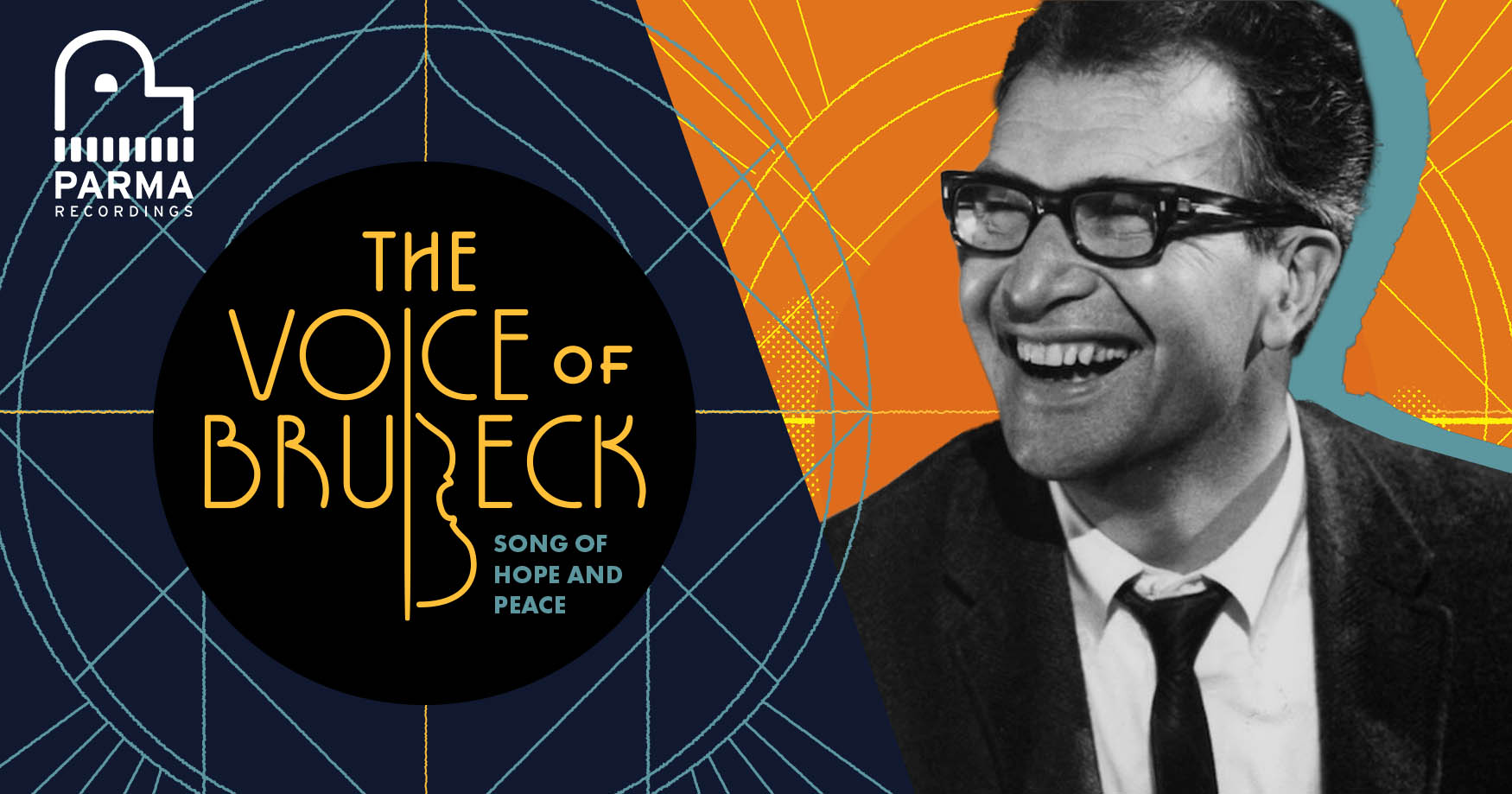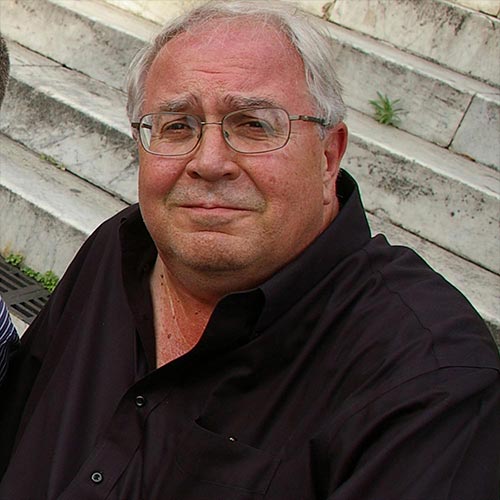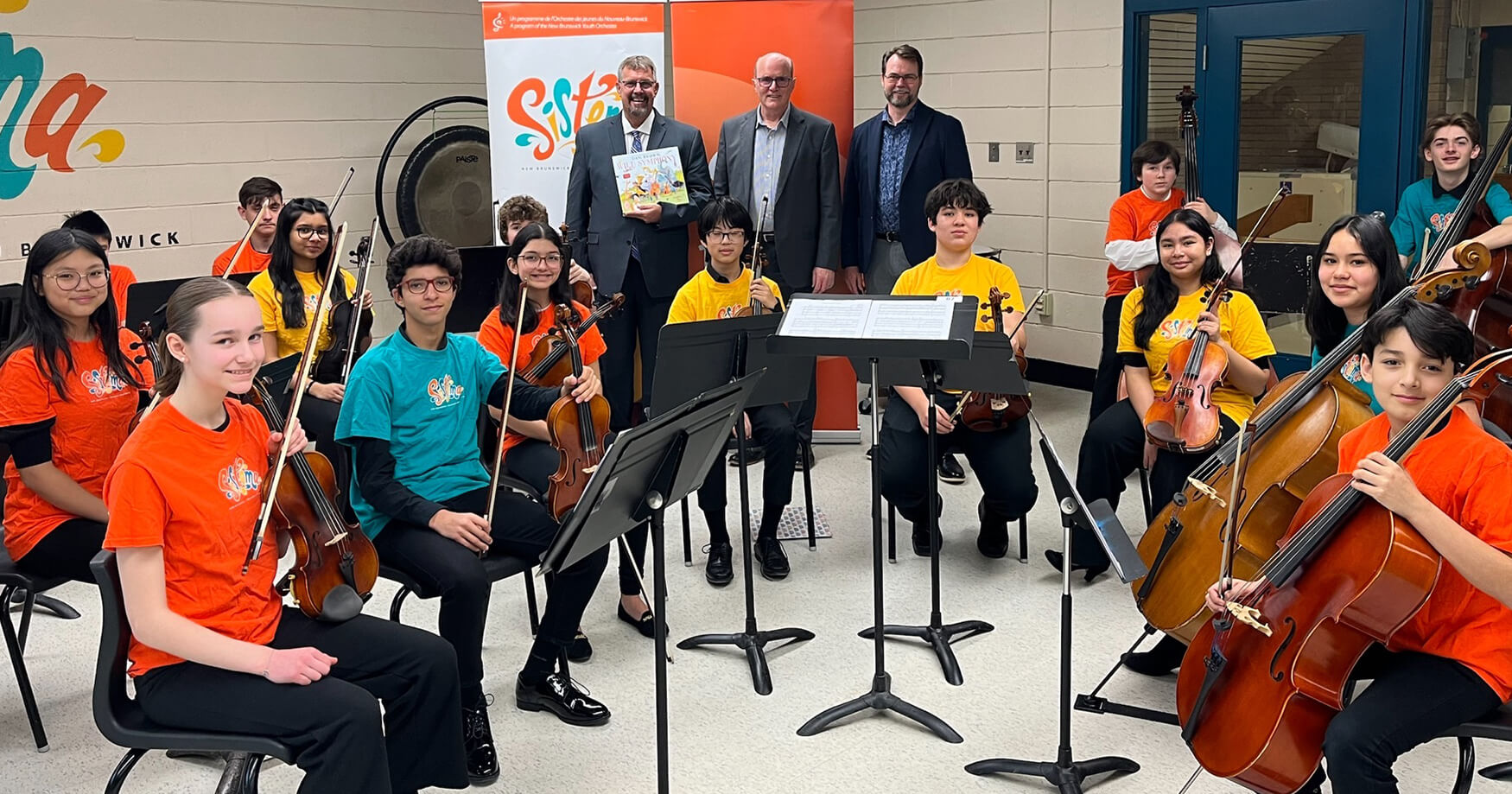Brubeck! A Celebration is a one-of-a-kind tribute concert celebrating Dave Brubeck’s contributions to jazz and his explorations of new musical forms.
The concert is a core element to The Voice of Dave Brubeck, a multi-year collaborative project of the Lago Vista Community Concerts Foundation that follows the recent centennial celebration of Brubeck’s life, with a goal of showcasing the artist’s classical explorations and introducing newer generations to his timeless works.
Spearheaded by producer and Rice University professor of composition Arthur Gottschalk, the program will feature the GRAMMY® Award-winning Houston Chamber Choir alongside a 19-piece orchestra and the Brubeck Brothers and Paul English Quartets. The following commercial album by PARMA Recordings and Navona Records is expected to release in late 2024.
We recently sat down with Gottschalk to learn more about the beginnings of this project and what we can expect from the multifaceted production. Read on for his thoughts on Brubeck, and secure your tickets to the event at the link below.
How’d you come to think of the project?
AG: When I was very young, Dave Brubeck, who was a famous guy ever since World War II, released his album Take Five. And that was the biggest selling record of all time. It had a huge influence on me and everybody else in my generation. I was a jazzer, and most jazzers really took it to heart. It was a big influence on everybody. When I got to college and started working in jazz there, I was pleased to see that one of my bandmates was another musician named Chris Brubeck, and sure enough, that’s Dave’s son.
I got to know Chris and the rest of the band members, and his father would come by now and then with his mother. Chris graduated, and I stayed all the way to get my doctorate. But we stayed in touch. My career started and his took off. And then in 2006, Robert Simpson, the director of the Houston Chamber Choir, brought Dave in to perform his choral music. Dave was elderly at the time.
I went to the concert and sat with the family. We talked about the old times. Watching Dave play was amazing. You tend to think things are going to go on forever. However, I didn’t see him again after that night.
Later on I was celebrating New Years in New Orleans. I was with a cello player named Patrick Moore, and he had played an arrangement of Brubeck masses by Paul English. Paul likes to use the music of Brubeck in religious services, and he’s found a couple of churches that think it’s a good idea and are run by priests who are jazz aficionados. Paul will always play jazz but every once in a while he shakes things up. He brings in a small orchestra and some singers and they do a mass illuminated by Brubeck’s music.
Moore mentioned Brubeck’s choral works and said “somebody should record that music.” I looked at him and said, “you’re absolutely right.”
I started by going to Paul English, who you know who has a big interest in Dave’s sacred music and concert music and also Bob Simpson, who runs the GRAMMY® Award-winning Houston Chamber Choir. I called Chris and I told him I’d like to record and release a collection of his dad’s concert music.
Paul English’s Quartet is familiar with this music. Paul’s arranged a lot of it already. We always looked at it as a performing, recording, and touring operation with emphasis on recording so that the public will have access to really good performances of this music for the first time. Chris was on board with that.
The concert will be the Paul English Quartet on one side of the stage and the Brubeck Brothers Quartet on the other side of the stage, the chamber orchestra behind them, and a choir arising behind them. There’ll be several pieces of Dave’s concert music that Paul is arranging for choir and orchestra and several pieces of that same style of repertoire that Chris is arranging for jazz quartet and orchestra. Then each of the two quartets will do an instrumental of a Dave Brubeck jazz standard. That’ll be the concert and shortly after that we’ll be recording the program.
What ideas and approaches do you have in mind with such a significant project like this? Is there like a particular sound you can already hear in your mind for all these different styles coming together?
AG: The sound I hear in my mind is pretty much the Brubeck sound because I’ve heard this music before. A lot of this music Dave wrote on commission from community choirs, children’s orchestras, all kinds of different things. He was always trained as a classical composer. But he made his living as a jazz composer, jazz band leader, and pianist. So the sound in my mind is Brubeck’s concert music done professionally, played the way it should have been, augmented by Chris and Paul’s creative vision too. They’re both immensely talented musicians, and experienced in building the music inside and out.
For the orchestra, Houston is filled with some of the finest orchestral musicians in the country. The Houston Chamber Choir is not only one of the best professional choirs in the country, but they actually have a history of performing these works.
Currently we’re heavily involved in fundraising because it’s an epic concert. There are a lot of moving parts with that and the recording. All the bases are covered with people that are experienced and have the same love and reverence for the music of Dave Brubeck that the rest of us do.
What are some of your favorite Brubeck pieces and which ones are you looking forward to hearing revitalized on this program?
AG: I think, like a lot of people of my generation, that Take Five was just a revelation. And actually, I have three piano suites and I’m working on a fourth suite, all of which are homages to great American jazz pianists and composers. My third suite honors Chick Corea, Art Tatum, and Dave Brubeck. The Dave Brubeck movement sources rhythms and textures from Take Five but also from his Blue Rondo a la Turk and from his settings of Disney songs.
My own music tends to explore Americanism. I’m very much influenced by my teacher William Bolcom, who is the guy who studied with the same people that Brubeck studied with — Darius Milhaud for example. I tend to explore American pop music in all its forms, going all the way back to blues and jazz to rock, pop, hip hop, and film music in the Great American Songbook. All of it is grist for my mill. And then I kind of strain it through my own peculiar ideas and end up with something new.
More on The Voice of Brubeck here:





